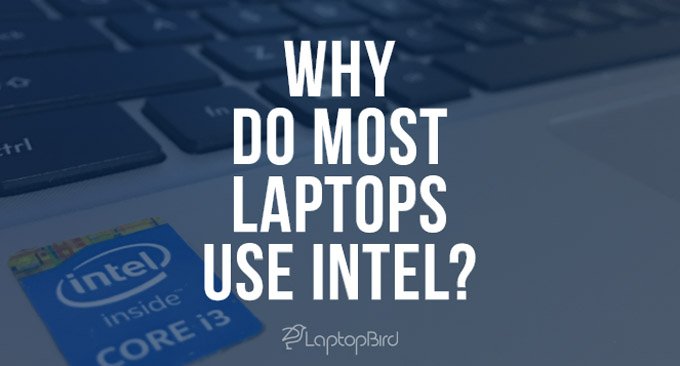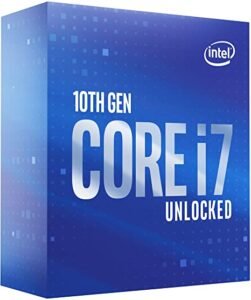Wondering the answer to the question: Why do most laptops use Intel chips? The most popular processors are Intel Core i7, Core i5, and Celeron.
While there are other processors available, the two brands are almost identical. Both brands deliver a very similar user experience.
The CPUs from both companies are equally suitable for office productivity and video streaming. AMD’s Ryzen 7 and Intel’s Core i7 are excellent choices for gamers.
Both laptops are available at a variety of price points. In addition, you can find models that are more affordable and offer a more comprehensive range of features.
Choosing between an AMD or Intel chip depends on your specific usage scenario.
Table of Contents
Why Do Most Laptops Use Intel Processors?
Intel is a Reliable Choice
The reason is quite simple. Intel spends more on marketing and advertising than on improving its chips. It works with OEMs to improve its chips, as seen in the Dell XPS 13. This way, it’s able to control what goes into the hardware. Since AMD and other competitors cannot design the same chip, Intel is the obvious choice.
The company is transparent about what goes into their hardware with the latest chips, including prototypes featured at trade shows.
Power Consumption
The biggest drawback with Intel’s processors is their power consumption. Adding features to their product stack has increased power consumption and heat production. The company was forced to make drastic changes to its chip designs to make its laptops more powerful.
While this may seem the best solution for the laptop’s overall performance, the drawbacks are mainly related to performance. Intel isn’t the only manufacturer to introduce the latest and most excellent processors in some cases.
Intel chips have been a preferred choice for many laptop users for years. Its reputation has made it a more reliable option than its competitors, and it has a more significant market share. The company is a good partner for OEMs, as it offers a range of features that other processors don’t have.
However, they require more power, which increases the risk of heat generation. It also has a much better driver support ecosystem for manufacturers.
You will love Intel Core i7-10700K Desktop Processor 8 Cores
Excellent Performance
When it comes to performance, AMD and Intel chipsets have the edge. Both types are significant in terms of processing power. While AMD’s chips are better, Intel’s chips are often cheaper. Because of this, the competition is fierce, and the best laptop is the one that meets your needs.
This means that you need to know a little more about the processors in your model. They should also be able to support the latest graphics cards.
AMD and Intel chips aren’t the only chips used in laptops. The two companies compete in the enterprise PC market, benefiting from a lower cost. But there are many disadvantages to using AMD, too. While it can be cheaper to buy an affordable version of AMD’s chips, the cost of buying them can be higher. In some cases, they aren’t the best option.
Popular Choice
Intel is a popular processor. It’s the most common CPU in laptops over $400. It’s faster than AMD, but it’s still not the fastest. For many users, CPUs are essential. Some people need a fast machine, while others require the best graphics card. They need to be able to play games and do more work. They need a faster CPU than their current ones, and AMD has the advantage.
AMD and Intel are the most popular processors for desktop computers; they are not the only processors used in laptops. While they have a strong following for business users, they’re not as popular.
The mid-tier Intel Core i5 is enough for everyday use. And even a low-cost version of an AMD CPU will run a web browser smoothly, but a lower-end one may not.
Final Words
Intel has been the choice of most laptops in the last several years. Its new KS-series desktop processors are the top processors in most laptops. In addition to AMD’s low-cost chips, Intel has been the leading processor choice for many years. Although AMD is smaller, its low-cost version is a popular option for consumers who need a high-performance notebook. But what do these chips do for the rest of us?
You may also like:

